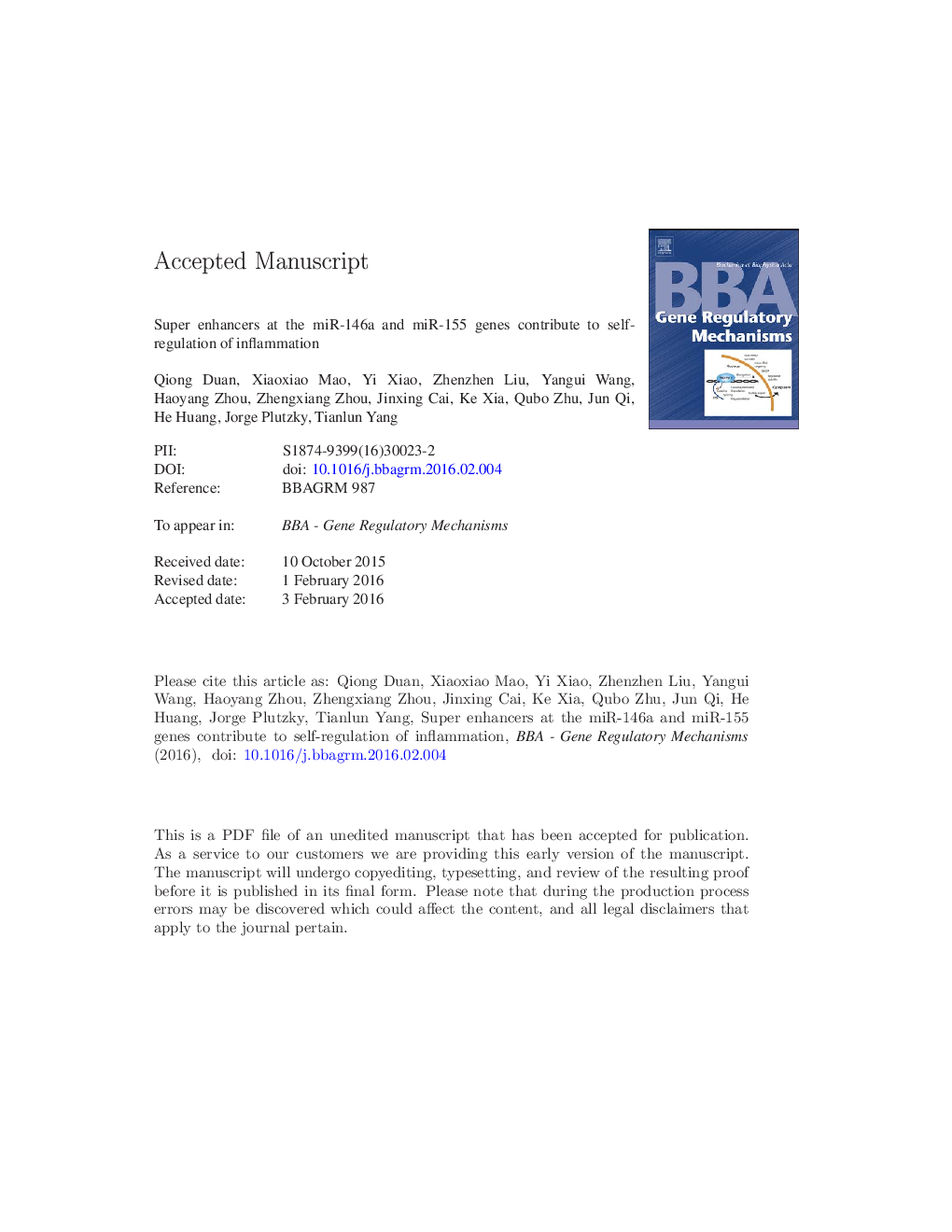| Article ID | Journal | Published Year | Pages | File Type |
|---|---|---|---|---|
| 10798975 | Biochimica et Biophysica Acta (BBA) - Gene Regulatory Mechanisms | 2016 | 23 Pages |
Abstract
Given that microRNA transcription shares a similar mechanism to mRNA, we assume that the inflammatory microRNAs transcription could be NF-κB and BET bromodomain dependent. In the present study, we confirmed that inflammatory stimuli changed human umbilical vein endothelial cells (HUVEC) microRNA profile. Among these microRNAs, miR-146a and miR-155, two well-established inflammatory microRNAs, are both downregulated at transcriptional level by NF-κB and BET bromodomain inhibition. To pursue this mechanism, we analyzed the ChIP-seq data and found that NF-κB, BRD4 and RNA POL II were rapidly distributed at the upstream regions of miR-146a and miR-155, and more importantly mediated the formation of the super enhancers that drive miR-146a and miR-155 transcription. These microRNAs transcription driven by super enhancers in turn downregulate both in vitro and in vivo canonical inflammatory genes expression through targeting inflammatory mediators. This novel finding demonstrated how the host self-regulates inflammatory genes expression at both transcriptional and post-transcriptional level to ensure the appropriate level of the host inflammatory response.
Related Topics
Life Sciences
Biochemistry, Genetics and Molecular Biology
Biochemistry
Authors
Qiong Duan, Xiaoxiao Mao, Yi Xiao, Zhenzhen Liu, Yangui Wang, Haoyang Zhou, Zhengxiang Zhou, Jinxing Cai, Ke Xia, Qubo Zhu, Jun Qi, He Huang, Jorge Plutzky, Tianlun Yang,
